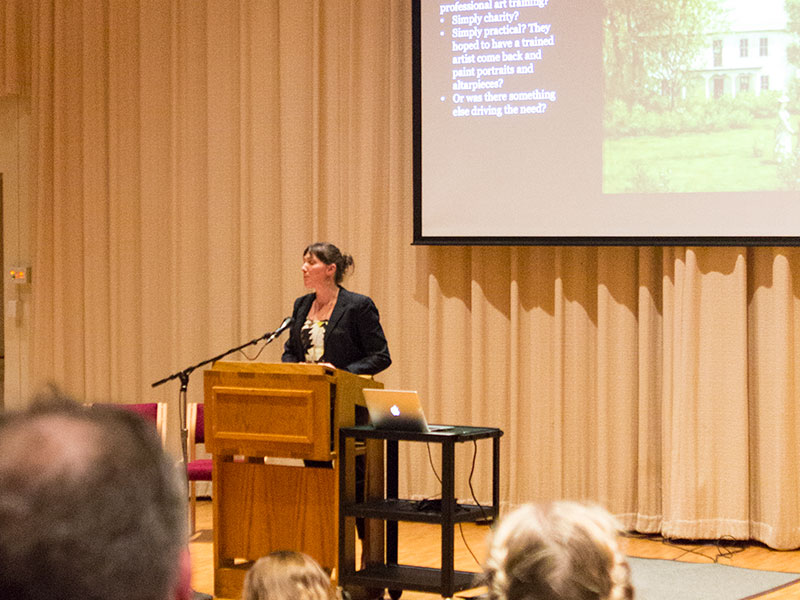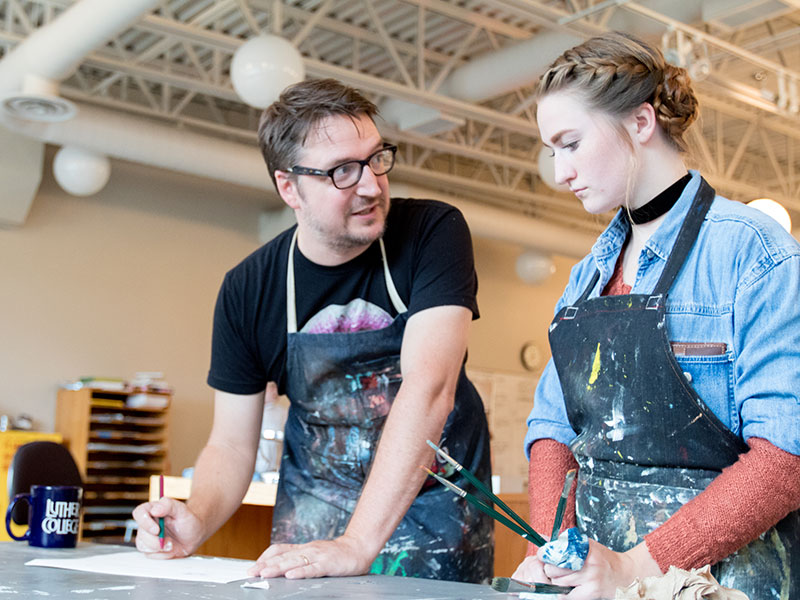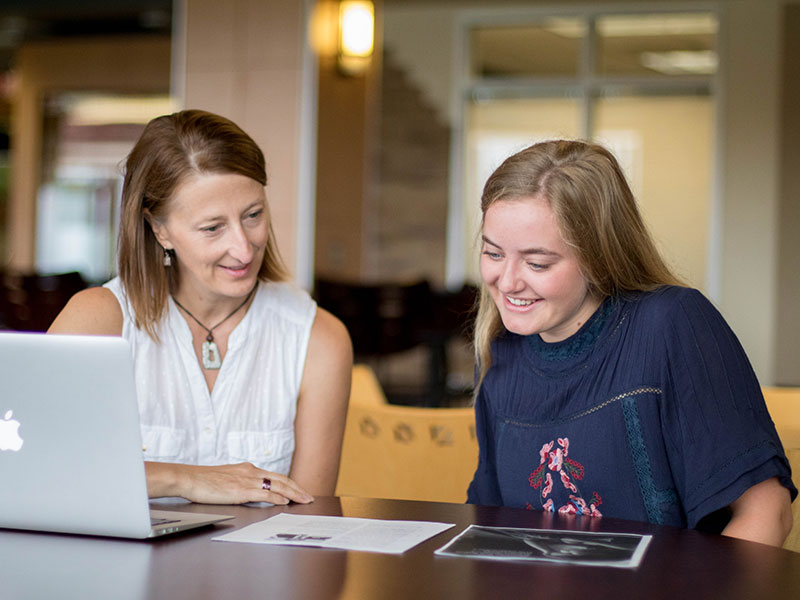Program Highlights
Off-Campus Study
A study-away experience is highly recommended if you’re interested in graduate work in art history. Students within the minor commonly participate in our Nottingham program or Malta program, exploring the vast and rich history of these locations while immersed in the culture. These programs are perfect ways to further your art history knowledge through firsthand experience.
Object-Based Art History Education
Art history students have the opportunity to work with objects from the Luther College Fine Art Collection. This means that you’ll have access to hands-on experience in researching art objects through internships or work-study opportunities.
Museum Studies Partnership
Students often pair their art history studies with a minor in museum studies. The theoretical and technical training you receive in museum studies courses provides you with the foundation you need to work in museums and other cultural institutions.
What You’ll Learn
As an art history student, you’ll study human expression in visual form. You’ll gain the skills to understand culture more widely as you explore the different styles and functions of art throughout time.
In your Luther art history courses, you’ll learn how the study of art:
- Provides insight into the passions and preoccupations of peoples across culture and time
- Helps you read and interpret visual art and historical documents
- Connects with your major program of interest (such as history, psychology, or cultural studies)
You will also learn to:
- Recognize the significance of major intellectual and artistic landmarks in human history
- Understand a diversity of people and societies, both historically and cross-culturally
- Write with fluency, clarity, and coherence
- Work productively in a collaborative environment
- Cultivate aesthetic sensitivity and intellectual curiosity
Research Project: The Works of Herbjørn Gausta
“After putting together all of the pieces, I was able to figure out the location that was depicted in the painting and who the subject was. I ultimately found out what happened to the original painting and who currently owns it. Putting all of those pieces together was a ton of fun for me.” –Emily Linder ‘19
Careers and Outcomes
Museums, galleries, and many nonprofit art organizations provide great opportunities for art-related careers. Many other kinds of organizations and companies look for people who can bring an aesthetic sensibility to their roles. These jobs range from marketing, sales, fashion, and interior design to education, collections management, and hospitality.
Career Fields
- Conservators/art restorers/conservation scientists
- Curators
- Interior designers
- Museum administrators/directors
- Museum educators
- Professors and teachers
- Researchers
- Tour guides


